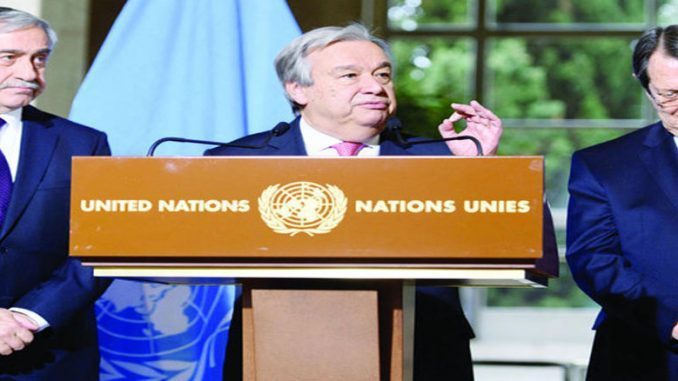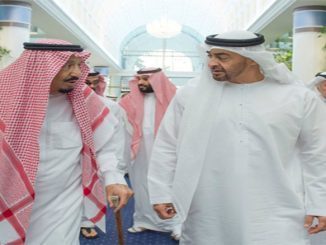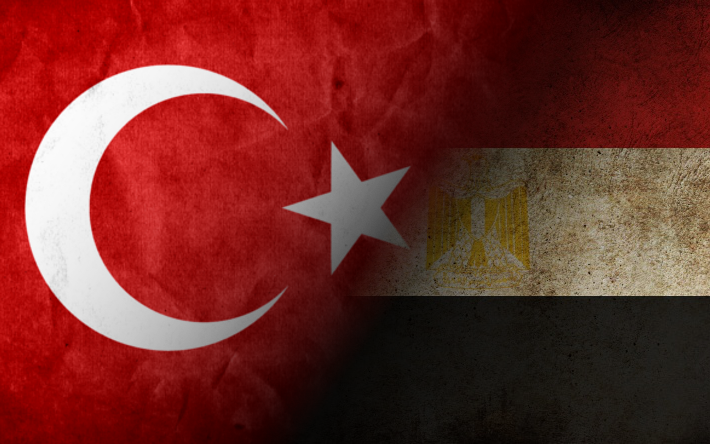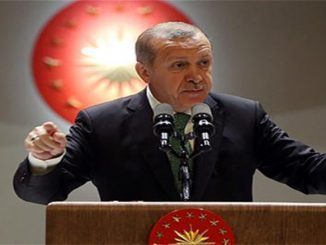
 NAGEHAN ALÇI*
NAGEHAN ALÇI*
An important phase of the Cyprus talks in Geneva has drawn to a close. The Cyprus question, which has come to epitomize the concept of intractability, has now provoked hopeful excitement for a solution, and an attempt began again in May 2015 to find an answer to the question of whether the island can reach a fair compromise that would satisfy both parties’ wishes. What can we say about the answer to this question at the present moment? Have the Geneva talks fulfilled our expectations? What will happen from now on?
Let us start with the scheme of negotiations. A five-party conference was held with the participation of guarantor countries. Both sides equally took part. There were no United Nations Security Council members. Negotiations were conducted with both parties remaining in the same position as usual under the U.N.’s auspices. An observer status was granted to the EU with the approval of both sides.
Following this phase, studies will be carried out on the topics of security and guarantees, political positions will be clearly defined and a political-level meeting will be held again. Next, foreign ministers will come together. This will likely happen again in Geneva at the end of January. The Cyprus negotiations consist of six chapters: Economy, EU, property, governance-power sharing, territory, security and guarantees. The chapters of territory, power sharing, property and compensations are the most troublesome.
The two maps of both parties being kept at a UN vault will be negotiated later, but the Greek Cypriots propose decreasing the Turkish Cypriot territory to 28.5 percent from the current near 35 percent, which is the basic disagreement. The other important red line for Turkey and the Turkish Republic of Northern Cyprus (KKTC) is the presence of Turkish troops, which they do not absolutely want to step back from.
Elements to be taken as a basis for property are compensation, barter and return. For this, a compensation commission will be formed consisting of Turkish, Greek Cypriot and foreign members. A Greek Cypriot constituent state and a Turkish Cypriot constituent state will be founded and they will have an equal number of members in the senate. The number of ministers in the ministerial cabinet will be proportional to the population of both parties. A rotating presidency will be pursued. Everyone will be able to live on both sides, but they will be the citizens of their own constituent state.
Even though these are written conditions and there seems to be hope for a solution, Greek Cypriot leader Nicos Anastasiades’ stipulation of the withdrawal of Turkish troops as a condition of peace has already much reduced the positive atmosphere. Apart from the increased territory desired for Greek Cyprus, the issue of the Turkish military presence, the unyielding red line of Turkey, arouses the question of how negotiations will proceed.
I think that Greek Cypriots are still revanchist and radically neo-nationalist. Whenever I go to the island, my opinion grows stronger. I was there just two weeks ago, and as far as I heard from the authorities I interviewed, the opposite party is maintaining its uncompromising attitude. If they desire compromise and a solution, they must first stop rolling out the red carpet for those who regard Turks as the enemy. They must eliminate the statue of Makarios and General George Grivas, who was once a Nazi collaborator, the greatest enemy of the Turks, and the National Organization of Cypriot Fighters (EOKA) founder. They must return these symbols to the past. They should change the unacceptable rejectionist attitude toward the Turks coming from Turkey, as this attitude brings the greatest loss for them.
If they open doors to those who come from Turkey as Turkish Cypriots do, Turks visiting there will allow them to earn the most. Now we must wait and see how the Geneva talks will proceed, although I am unfortunately not very hopeful. At least, however, it is an important stage for an issue that almost sank into oblivion; Cyprus has been given hope again with the way for dialogue open.
* NAGEHAN ALÇI is a Turkish Columnist. She writes for Daily Sabah Turkish newspaper.
(Published in Daily Sabah on Tuesday, Jan. 17, 2017)



